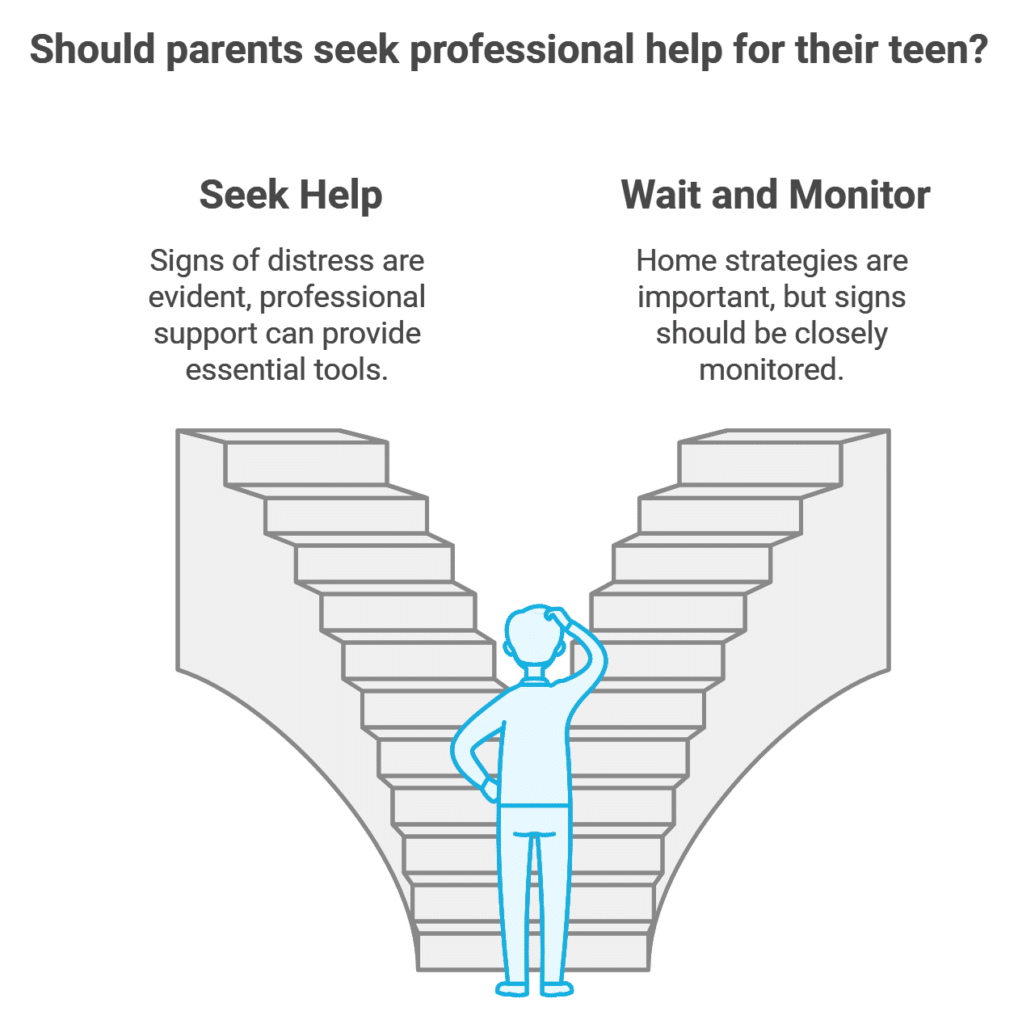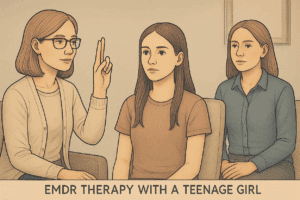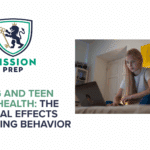The teenage years are always tough, but today’s teens face a mental health crisis that’s unlike anything we’ve seen before. In fact, 40% of students in 2023 experienced persistent feelings of sadness or hopelessness, a staggering statistic that highlights just how serious things have become.
From academic pressures to social media, the world feels more stressful than ever for teens. As a parent, you might feel unsure about how to best support your teen through these challenges. The good news is, there are things you can do right now to provide real mental health support for teens and make a lasting difference.
In this blog, we’ll talk about how to recognize when your teen may be struggling and share actionable strategies to help. Whether your teen is dealing with stress, anxiety, or more serious mental health issues, there are steps you can take to be part of the solution. Let’s dive into how you can help.
Understanding the Pressures Facing Today’s Teens
Today’s teenagers are under incredible pressure, juggling the demands of school, managing social relationships, and navigating a world where social media amplifies every aspect of their lives. It’s no surprise that teenagers’ mental health is being stretched to the breaking point.
Teens often feel like they’re walking a tightrope, trying to balance their self-worth with the likes on their Instagram posts and their grades. The pressure to succeed is so high, and constantly comparing themselves to others—whether online or in real life—can make them feel overwhelmed.
The COVID-19 pandemic has only intensified the challenges our teens face. Many missed out on vital social interactions during their crucial developmental years, resulting in feelings of isolation and anxiety.
These pressures aren’t going away, but as parents, we can be more attuned to their impact on our kids. It’s essential to recognize that what might appear as “normal teen stress” could actually signal deeper struggles. By acknowledging these pressures, we open the door to a more compassionate and informed approach to helping teenagers with mental health issues.
Open and Honest Communication
One of the best ways to truly support your teen is by keeping the lines of communication wide open. It’s easy to think that if your teen isn’t sharing their problems, everything must be fine. But here’s the truth: many teens hide their struggles to avoid worrying their parents or feeling judged. That’s why creating a space for open dialogue is so crucial.
To get started, ask open-ended questions that invite your teen to share their thoughts without feeling pressured. Instead of asking, “How was your day?” try, “What was the best part of your day today?” or “Is there anything you’ve been feeling stressed about lately?” When they respond, make sure to listen without jumping in to “fix” the situation right away. Sometimes, your teen just needs to feel heard.
Creating this kind of safe space at home can encourage your teen to open up about what’s really going on beneath the surface. This is one of the most effective ways to offer mental health support for teens because it allows you to stay in tune with their emotional well-being.
Establishing Healthy Routines and Boundaries
Teens may resist it, but they truly thrive on structure! Creating healthy routines can be a fantastic way to help your teen navigate stress and find emotional balance. Little changes, like a consistent sleep schedule, regular exercise, and unplugging from screens, can make a world of difference for teenagers’ mental health.
Sleep, in particular, is a big factor. Many teens aren’t getting enough of it, and poor sleep can worsen feelings of anxiety and depression. Encouraging your teen to stick to a bedtime routine can help them feel more rested and ready to take on the day.
Another important aspect of their routine is limiting screen time, especially on social media. Teens are bombarded with images of perfection online, which can make them feel inadequate.
Setting boundaries around social media use—such as “no phones at the dinner table” or “tech-free weekends”—can give your teen a much-needed break from the comparison game and help them focus on real-life connections. These small shifts can make a big difference in how to improve teenage mental health.
At-Home Strategies for Supporting Your Teen’s Mental Health
As a parent, there are plenty of things you can do at home to create a supportive environment for your teen.
One key strategy is encouraging them to engage in activities that bring them joy and help them decompress. Whether it’s sports, art, music, or simply spending time outdoors, giving your teen space to explore their interests can be a great way to relieve stress.
It’s also important to model healthy coping mechanisms yourself. Teens learn by watching their parents, so if they see you practicing mindfulness, exercising, or taking time for self-care, they’re more likely to adopt these habits themselves. Showing your teen that it’s okay to ask for help or take time for self-care goes a long way in promoting mental health support for teens.
Remember, every family is different. The strategies that work for one teen may not work for another. Be patient, and keep experimenting with different approaches until you find what resonates with your child.
Recognizing When Professional Help is Needed
While home strategies are important, it’s also crucial to recognize when your teen might need professional help. Here are some signs to look out for:
- Withdrawal from friends and family.
- A noticeable change in sleeping or eating habits.
- Persistent sadness, irritability, or mood swings.
- Talking about feeling hopeless or worthless.
- Any mention of self-harm or suicidal thoughts.
If you spot any of these signs, don’t hesitate to reach out for help! Professional therapy or counseling can equip your teen with the essential tools to navigate their emotions and tackle mental health challenges head-on. Remember, seeking professional support isn’t a sign of failure as a parent—it’s a powerful way to empower your teen on their journey to wellness.
How Mission Prep Can Help
At Mission Prep, we’re dedicated to providing comprehensive, innovative mental health support for teens. We believe that every element of the family’s care is critical, which is why we take a holistic approach to treating both teens and their families. Whether your teen is dealing with anxiety, depression, or mood and thought disorders, we have the resources to help them heal and thrive.
Our program includes sessions with board-certified psychiatrists, individual and family therapy, academic planning and support, life skills courses, and sustainable technology strategies to help teens navigate their digital world. We also provide support to help families get back on track after treatment is done.
Our goal is to create sustainable, long-term change for your teen and your family. We understand that addressing teenagers’ mental health is a journey, and we’re here to walk alongside you every step of the way.
Conclusion
Parenting a teen in today’s world is challenging, but you don’t have to go it alone. By fostering open communication, setting healthy routines, and seeking professional help when needed, you can offer meaningful mental health support for teens. Remember, your efforts—big and small—can have a lasting impact on your teen’s well-being. If your teen needs more support, Mission Prep is here to help your family find the fresh start you need.
























